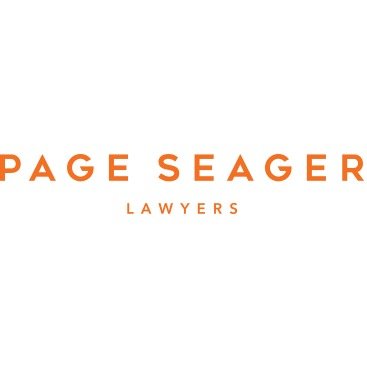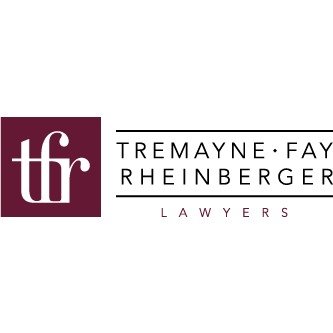Best Employment Benefits & Executive Compensation Lawyers in Hobart
Share your needs with us, get contacted by law firms.
Free. Takes 2 min.
List of the best lawyers in Hobart, Australia
About Employment Benefits & Executive Compensation Law in Hobart, Australia
Employment Benefits & Executive Compensation law in Hobart, Australia, addresses the legal aspects of employee remunerations, bonus plans, retirement schemes, and executive compensations. It encompasses the regulatory framework that governs employee entitlements, ensuring fairness, transparency, and compliance with employment standards. This field of law is crucial for maintaining equitable business practices, addressing the needs of employees, and ensuring companies adhere to local and national legislation.
Why You May Need a Lawyer
Individuals and companies alike may require legal assistance in Employment Benefits & Executive Compensation for a variety of reasons. Common situations include disputes over employee entitlements, restructuring compensation packages, navigating complex tax implications, ensuring regulatory compliance for executive perks, drafting employment contracts, and handling disputes related to termination payments. Legal expertise can ensure that you understand your rights and obligations, helping to avoid costly legal issues.
Local Laws Overview
In Hobart, Employment Benefits & Executive Compensation are subject to both federal and state legislation. The Fair Work Act 2009 provides a national employment standards framework, while the Corporations Act 2001 governs executive remuneration for companies. Moreover, the Australian Tax Office (ATO) provides guidelines on how employee benefits are taxed. Employers must also comply with superannuation requirements as stipulated in the Superannuation Guarantee (Administration) Act 1992. Understanding these laws is key to ensuring legal compliance and avoiding penalties.
Frequently Asked Questions
What constitutes an employment benefit?
Employment benefits can include salary, bonuses, health insurance, retirement savings plans, stock options, paid leave, and various employee welfare programs.
How are executive compensations regulated?
Executive compensation is regulated by both the Corporations Act 2001 and the Australian Securities Exchange (ASX) listing rules, ensuring full disclosure and shareholder approval of executive pay packages.
Are all employees entitled to superannuation?
Yes, most employees in Australia are entitled to superannuation contributions from their employer, which is currently set at a minimum of 10.5% of their ordinary time earnings.
What should be included in an employment contract?
An employment contract should include job responsibilities, salary, benefits, termination conditions, and any other relevant terms agreed upon by both parties.
How are bonuses taxed in Australia?
Bonuses are considered taxable income and taxed at the employee's marginal tax rate. The timing and nature of bonuses can affect how they are taxed.
Can executive compensation be clawed back?
Under certain conditions, such as in cases of fraud or misconduct, companies may be able to reclaim executive compensation. This is usually outlined in the employment contract or company policy.
What is Fringe Benefit Tax (FBT)?
FBT is a tax employers pay on certain benefits they provide to their employees or employees' associates, in addition to or in place of salary or wages.
How can disputes about employment benefits be resolved?
Disputes can be resolved through negotiation, mediation, or if necessary, legal action in the relevant industrial court or tribunal.
What is a performance-related pay scheme?
A performance-related pay scheme remunerates employees based on their job performance, often through bonuses, salary increases, or stock options.
Are there any mandatory benefits employers must provide?
Yes, employers are mandated to provide certain benefits such as superannuation contributions and paid leave. The specifics can vary based on the industry and type of employment.
Additional Resources
For further assistance, consider reaching out to the Fair Work Ombudsman, the Australian Securities and Investments Commission (ASIC), or consulting the ATO for tax-related queries. Additionally, legal aid agencies in Tasmania can provide support and guidance.
Next Steps
If you require legal assistance in Employment Benefits & Executive Compensation, consider consulting with a specialized employment lawyer or law firm in Hobart. They can provide tailored advice specific to your situation, ensure compliance with the law, and help you resolve any disputes. It is advisable to prepare relevant documentation before seeking legal advice to facilitate a more comprehensive consultation.
Lawzana helps you find the best lawyers and law firms in Hobart through a curated and pre-screened list of qualified legal professionals. Our platform offers rankings and detailed profiles of attorneys and law firms, allowing you to compare based on practice areas, including Employment Benefits & Executive Compensation, experience, and client feedback.
Each profile includes a description of the firm's areas of practice, client reviews, team members and partners, year of establishment, spoken languages, office locations, contact information, social media presence, and any published articles or resources. Most firms on our platform speak English and are experienced in both local and international legal matters.
Get a quote from top-rated law firms in Hobart, Australia — quickly, securely, and without unnecessary hassle.
Disclaimer:
The information provided on this page is for general informational purposes only and does not constitute legal advice. While we strive to ensure the accuracy and relevance of the content, legal information may change over time, and interpretations of the law can vary. You should always consult with a qualified legal professional for advice specific to your situation.
We disclaim all liability for actions taken or not taken based on the content of this page. If you believe any information is incorrect or outdated, please contact us, and we will review and update it where appropriate.
















